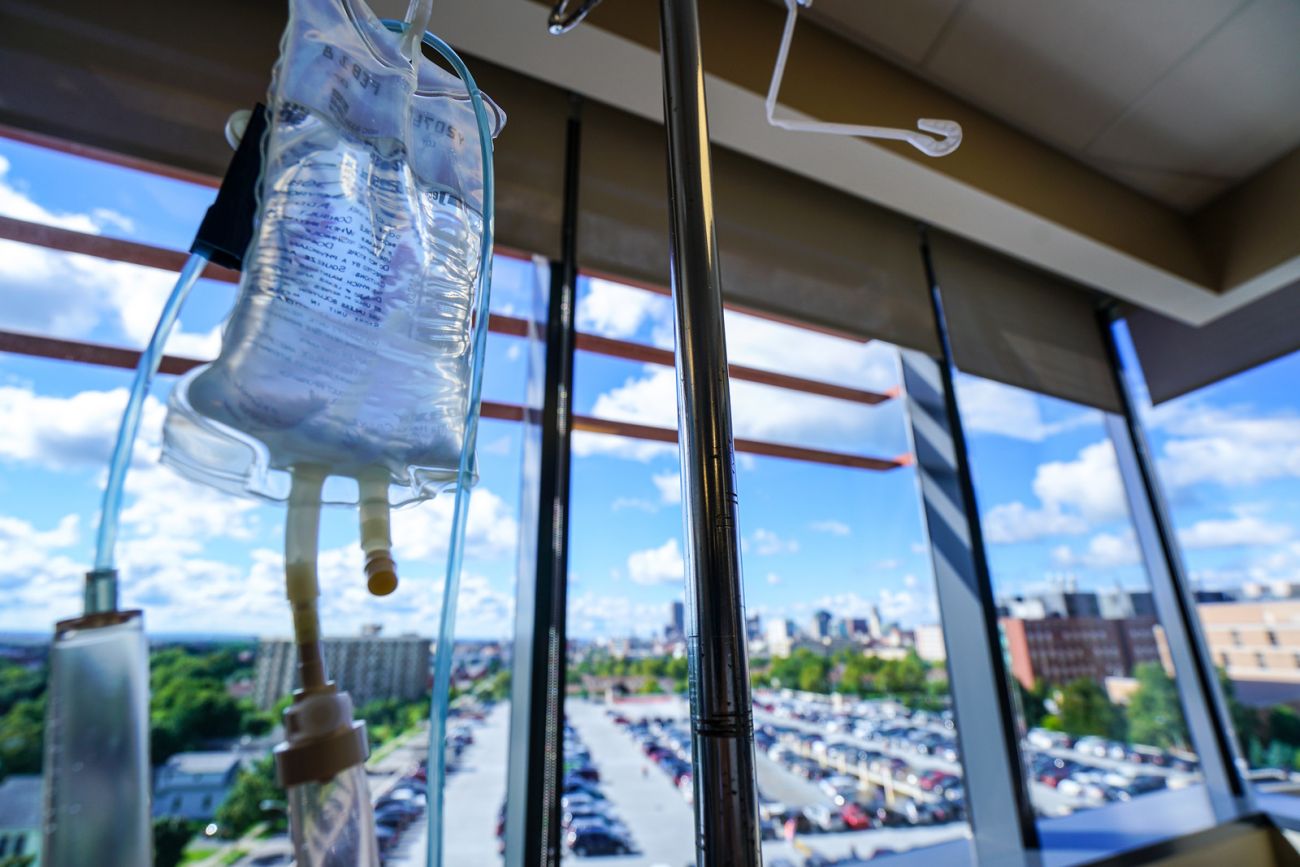Chemotherapy for lymphoma
Chemotherapy refers to a type of cancer drug that kills fast-dividing cells in the body, such as cancer cells. More than 40 different chemotherapy drugs are available to treat lymphoma. Each drug works in a slightly different way with different side effects. Sometimes chemotherapy will use just one drug, but for lymphoma, a combination of two or more chemotherapy drugs, called a regimen, is used.
You may also have treatment that combines chemotherapy with other types of cancer drugs, such as immunotherapy or targeted therapy drugs.
Using a combination of drugs allows the chemotherapy to kill more lymphoma cells by attacking them at different stages of their growth cycle. Combination therapy also reduces the chance of developing resistance to the drug and helps to limit the side effects.
Chemotherapy may be delivered in several ways, including:
- Infusion into the bloodstream through a vein or port.
- Injected under the skin
- Swallowed in pill form
- Injected into the fluid surrounding the brain and spinal cord
Usually, chemotherapy is delivered in cycles of several treatment days, followed by days of rest (no treatment) to allow your body to recover.
If you have a treatment plan that administers your drug therapy through an infusion, you’ll likely have your treatment at Roswell Park’s Chemotherapy & Infusion Center.
Immunotherapy drugs for lymphoma
Immunotherapy uses drugs, proteins and even your own cells to stimulate your immune system against the cancer cells. Immunotherapy drugs for lymphoma include several types of drugs that work in different ways. Some of the immunotherapy drugs chosen for your treatment plan may include these:
- Monoclonal antibodies are designed to seek out specific proteins or target other unique characteristics of each patient’s cancer cells. Like a magnet, they find and attach themselves to the target on the cancer cells and can kill the cancer cell directly or help the immune system recognize the cancer cell to fight it. Monoclonal antibody therapy for lymphoma includes drugs that target proteins known as CD19, CD20 or PD-1.
- Antibody drug conjugates. Monoclonal antibodies may be joined to a chemotherapy drug to create an antibody drug conjugate. The monoclonal antibody acts as a delivery vehicle, attaching itself to the cancer cell, and delivers the chemotherapy drug directly to that cell to destroy it, while healthy cells are protected.
- Bispecific T-cell engagers (BiTEs). These drugs work to engage or trigger your own T cells (powerful immune cells) to destroy the cancer cells. They use an antibody to attach to two specific sites: one on the T cell and one on the cancer cell, bringing the two cells close together so that the T cell recognizes and kills the cancer cell.
